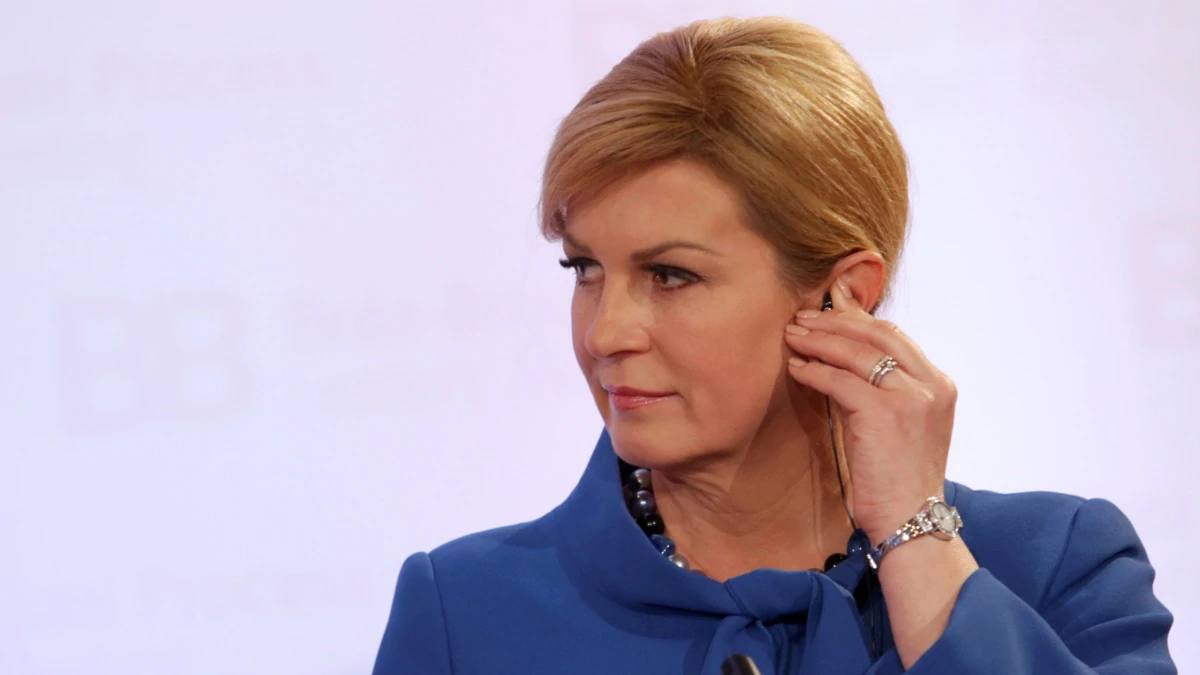
WASHINGTON — The United States needs to step up its engagement with the Western Balkans if it wants to counter Chinese and Russian influence in the region, the former president of Croatia said.
Kolinda Grabar-Kitarovic, who served as president of the Balkan nation from 2015-20, also criticized Europe for dragging its feet on regional integration.
“If you want to really prevent others from political interference in a certain area, then you have to be involved yourself,” Grabar-Kitarovic said, referring to the United States, during a discussion hosted on February 17 by Stanford University’s Hoover Institution.
“I must say that I’ve been disappointed by the sort of [lack of interest] that I’ve seen in the past years” in the Balkan region from the administrations of both President Donald Trump and his predecessor Barack Obama, she said.
Washington and Brussels have been seeking to integrate the nations of the Western Balkans into the European Union and NATO to bring stability to a region rocked by ethnic fighting in the 1990s.
However, Grabar-Kitarovic said the process has been “too slow” and that “it’s creating a vacuum that is being filled by third forces that are not necessarily benevolent at all times,” a possible reference to China and Russia.
The United States and EU have expressed concerns over investments by Beijing in the Western Balkans as well as Kremlin disinformation and political influence activities in the region.
As an example, Grabar-Kitarovic called the decision to invite Bosnia-Herzegovina into NATO’s Partnership for Peace program rather than directly into the military alliance “an unnecessary delay” that opens the door for adversaries to claim that the region isn’t “good enough” for Western organizations.
The former president highlighted the importance of Bosnia’s stability to Croatia’s own security. Bosnia, which borders Croatia, is threatened with secessionist movements.
Grabar-Kitarovic said the Chinese are taking a “very smart” approach in their relations with the Western Balkans.
“They show that they value you, that they will talk to you,” she said, pointing out that a Croatian leader hasn’t had a White House meeting since 2006, when George W. Bush was president.
“The feeling that we are all getting…is if you are not a big country, or if you are not a problem country, or if you are not bringing big money to the table, you don’t have an entrance to the White House,” she said.
She said Washington has been “dragging its feet” on a double-taxation treaty with the country that would improve trade, and that she could not remember the last time a company from the United States made a big investment in Croatia.
“What I would like to see is more U.S. engagement, and a lot more active role” in the region, she said.
The United States has promised to invest up to $1 billion into the Three Seas Initiative Investment Fund, which seeks to back projects that help the 12 EU nations located between the Baltic, Black, and Adriatic seas improve their transport, energy, and digital infrastructure connections.
Grabar-Kitarovic, along with Polish President Andrzej Duda, launched the Three Seas Initiative in 2015.
This post was originally published on Radio Free.